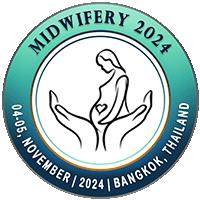
Bakhtawar Shalwani
Research Coordinator, OBGYN department, CanadaTitle: Facilitators and Barriers Infuencing Utilization of Services Provided by Community Midwives in District Thatta, Pakistan: A Qualitative Exploratory Study
Abstract
Background: To address the issue of high
maternal mortality, the Government of Pakistan initiated a community midwifery
program in 2006 to provide skilled birth attendance to women living in rural
areas. Despite a large investment in the community midwifery program, research
evidence from rural districts of Pakistan suggests that the utilization of
maternal and newborn services through community midwives is very low. This
exploratory study aimed to understand the facilitators and barriers influencing
community midwives’ services utilization in district Thatta.
Methods: A qualitative study was conducted
in the rural district Thatta, Pakistan. Key-informant interviews (KIIs) were
conducted with district officials of the Health department (Thatta), Maternal
and Newborn Child Health Program, and Midwifery Association of Pakistan (MAP).
In-depth Interviews (IDIs) were conducted with midwifery students who were
currently enrolled in the midwifery program of the district; trained community
midwives providing services in district Thatta, and trained community midwives
not continuing their profession. IDIs were also conducted with community women
to explore their views about the scope of midwifery practice and the factors
influencing the utilization of community midwives’ services in district Thatta,
Pakistan. Data were analyzed using qualitative thematic analysis.
Results: A total of 25 interviews (KIIs =
5; IDIs = 20) were conducted. Two overarching themes were identified: (I)
community midwives’ skills and competencies; and (II) ownership and supportive
supervision. The major hindering factors for community midwives’ service
utilization included deficiencies in community midwives’ training particularly
in clinical hands-on training, lack of ownership of community midwifery
program, and lack of service structure by the CMWs regulatory body.
Conclusion: The study has identified
serious gaps in the CMWs program at the level of training and supervision of
midwives in Pakistan. The study has also identified factors related to the
training of CMWs that could facilitate the program in the context of Pakistan
and similar settings.
Biography
Bakhtawar Shalwani has completed his MSc in Health Policy and Management from the
Aga Khan University, Pakistan. She is working as a research coordinator in the
department of obstetrics and gynecology department of the Aga Khan University
Hospital and her research interests include maternal and child health,
midwifery care and primary care services. She has around 09 paper published in
peer reviewed journals and has been serving as a peer reviewer in several
reputed journals.

